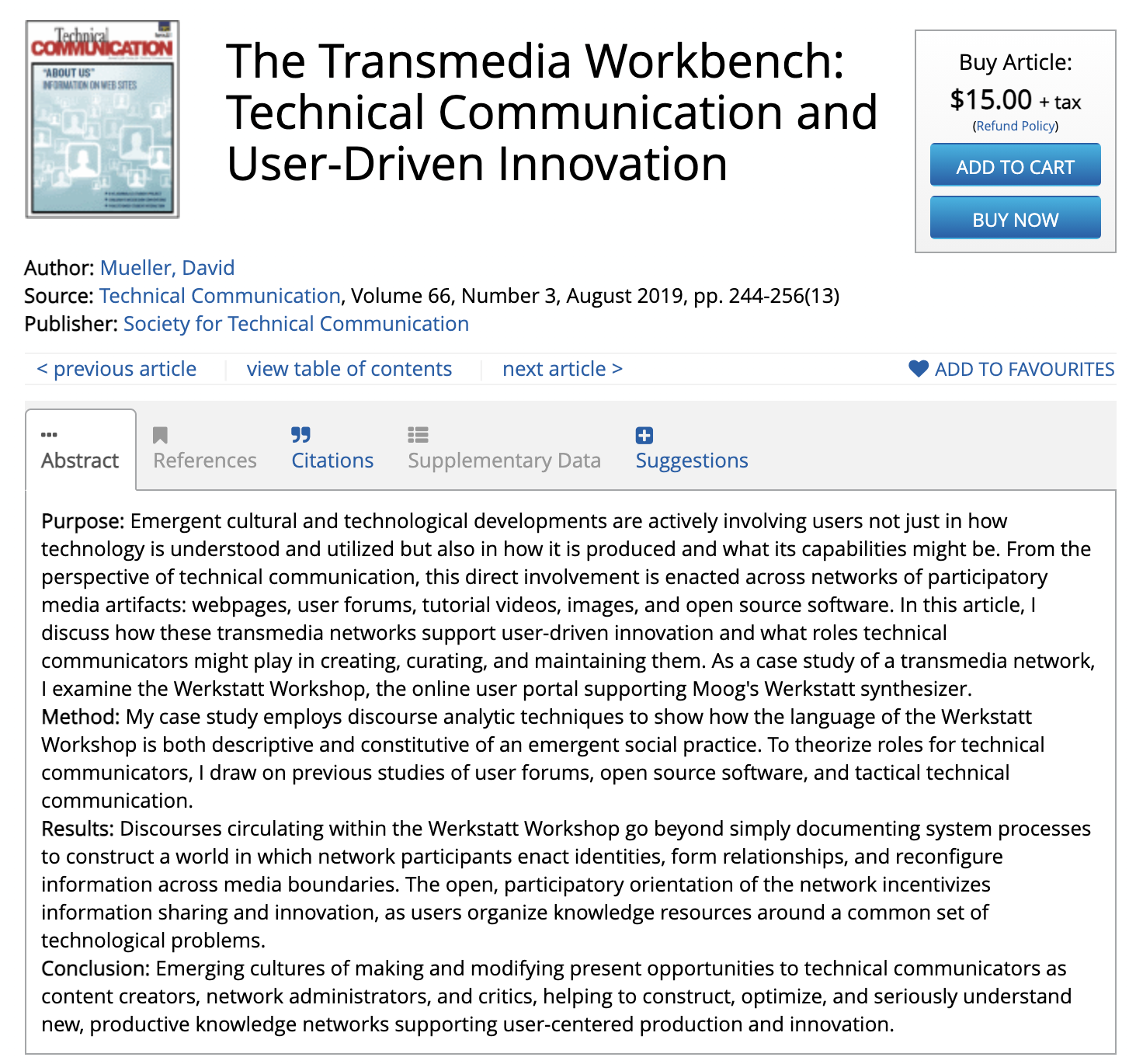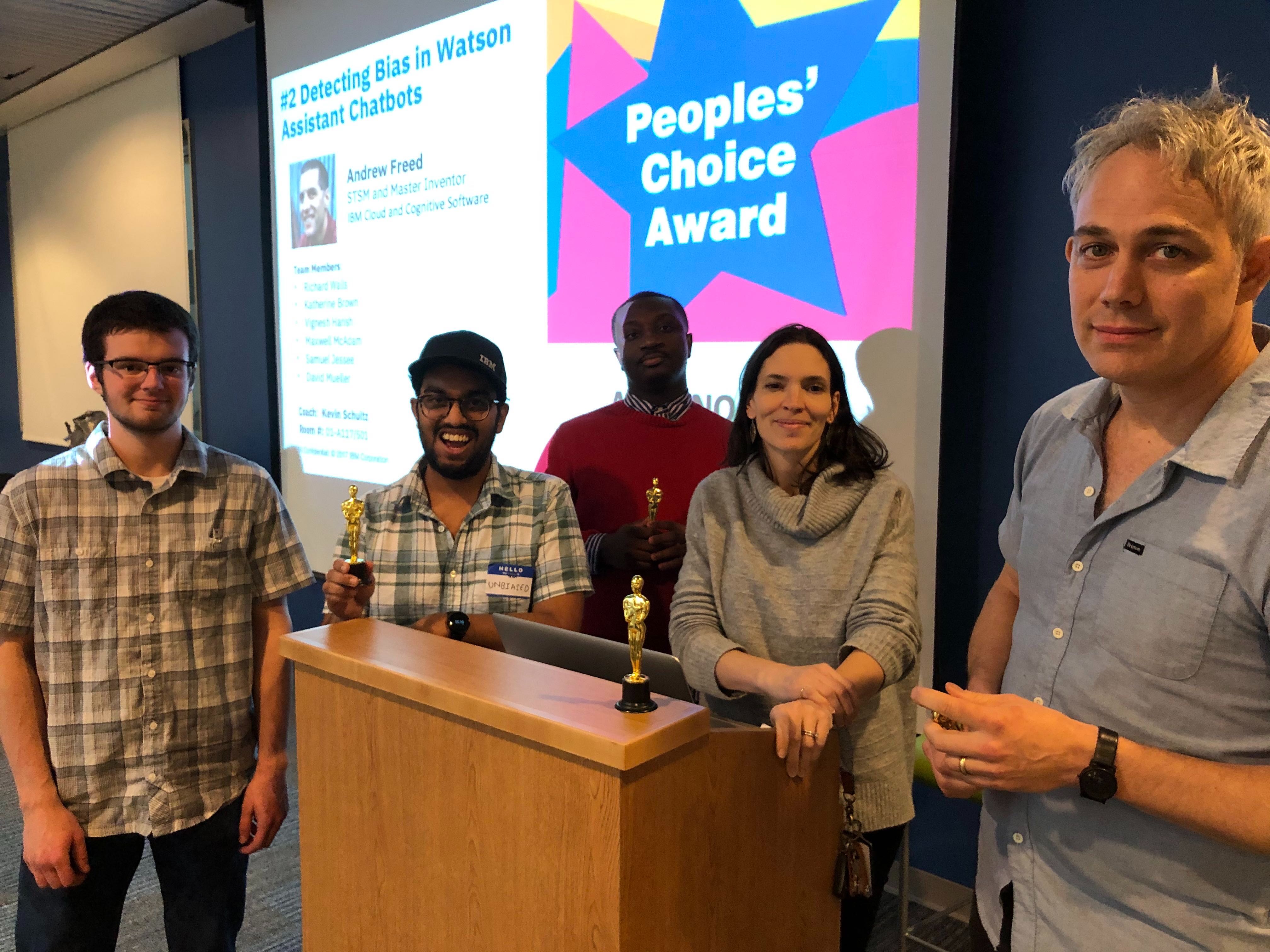 See all blog posts
See all blog posts
Meet our open source champions: David Mueller, Technical Writer
In this blog series, we’re highlighting some of the amazing individuals who contribute to Open Source software (OSS). We’ll delve into their contributions within OSS, their career journey, how OSS involvement has helped them, and their advice to others for getting involved.
Introduction:
David is a technical writer who serves as the documentation focal for Open Liberty. In that capacity, he writes and edits topics for the Open Liberty docs , provides editorial reviews for Open Liberty blog posts and guides, and serves as a primary contact between the development and ID teams. Open Liberty is the first open source project he has contributed to.

Tech introduction:
Open Liberty documentation The Open Liberty documentation is a complex and exciting project. Not only are we constantly developing new content, we are also updating and migrating content from the WebSphere Liberty documentation, which is a much larger collection than Open Liberty. A lot of that information is about longer-running features and technologies so we are always trying to understand them in the context modern cloud-native application development. It’s important to understand how developers are using the product today, as opposed to a year or even 6 months ago, and to make sure our documentation supports those practices.
Open Liberty blogs The blogs are an opportunity for our developers to speak directly to the user community; to provide insights and tips but also to respond to questions and pain points that might come out in community forums and comments. It’s important for the bloggers to have the freedom to be conversational and use their own voice. As an editor, I try to make sure those voices come through, while also telling a clear and consistent story. I try to read the posts as a user, and ask the questions a user might have.
Open Liberty guides The guides present a special approach to information design: part tutorial, part demo. They enable developers to learn by doing and to see the results of code changes in real time. Editing them requires close attention to the flow of tasks. With tutorial-based content, you have to balance progressive disclosure of information against keeping the user oriented in the overall objective.
Table of contents:
Q&A:
What inspired you to become a technical writer? What do you love most about this role?
I worked as a freelance writer for years, in various capacities, before I got involved with technical writing. When I was in grad school, I got a job writing and editing content for departmental and research websites with university IT. I liked the mix of composition, design, and research. I enjoy writing about technology because I love to learn new things. I love getting inside a topic and figuring out what it is about a certain technology that matters most to the people who rely on it.

What impact do you think you’re able to have through this role and the material you help curate?
I think the impact I can have as a technical writer is to make sure people get the most out of a given technology, to help them understand not only how but why they should use it. I’ve heard it said "If it isn’t documented, it doesn’t exist." So I guess you could say my job is to make sure our products and features properly exist.
What projects have you worked on since joining IBM?
Open Liberty, WebSphere Liberty and traditional WAS, Voice Gateway, Cloud Pak for Applications. I’ve also worked on several patents.
How has your involvement in open-source projects impacted upon your work or impacted you personally? Have any new opportunities been opened up to you through this involvement?
One thing that’s great about working in an open source documentation repository is that there’s less of a boundary between the writer and the users. With a traditional product, a lot of the feedback you get might be filtered through support, product teams, even marketing before it gets back to the people writing the docs. It takes longer, and sometimes the original context gets lost. So it’s tough to understand how best to address a problem. With an open source project, users can just go directly to the repo and open an issue if they encounter a problem with the doc. And people do! It gives me an opportunity to see firsthand how people are using the docs and the kind of work they’re doing with the product itself. All of that informs my approach to the doc and enables me to make better decisions about what we document and how we approach it.
What role/impact does technical writing have specifically in an open source community or project? How does it help the open source community and the project to progress and develop?
I am of course biased on this but I believe documentation is just as important as code. What good is a tool if you don’t know how to use it? Language is just another code, like Java, Python, whatever. Except in this case the compiler is your brain. In that sense, the documentation extends the interface, bridges the gap between the machine and the human.

Who should partake in technical writing? Is this something everyone in an OSS community can contribute to? What skills are needed?
I think anyone can write documentation and everyone should try. You learn so much about a topic just by writing about it. It forces you to reckon with what you don’t fully understand and what you take for granted. Writing about a software process can also help you optimize it. You might not realize a certain step is redundant until you write the entire process out.
You have to develop many skills to be an effective writer: composition, attention to detail, critical and creative thinking, etc. But I don’t think anyone’s relative development of those skills should stop them from trying to write. Anyone can write documentation, but some people will need more help than others to get it into a state that is useful. And that’s why I’m here- to help!
What piece of advice would you give to someone who is generally interested in getting involved in OSS? Advice on getting started contributing specifically to documentation or other technical writing pieces in an OSS project?
Documentation is a great way to get started contributing to an open source project because there’s a relatively low barrier to entry. You don’t have to understand all the complexities of a project to contribute to the doc. It can be as simple as fixing typos or clarifying apparent contradictions. Reading the docs is also a great way to get a feel for a project and see if it’s something you’d want to get involved with.
Getting started with Open Source
If this article has helped inspire you to get started contributing to open source, why not consider contributing to Open Liberty. It’s easy to get started: https://openliberty.io/contribute/




